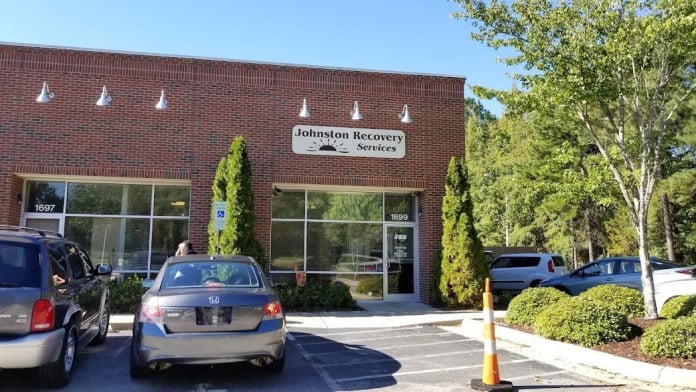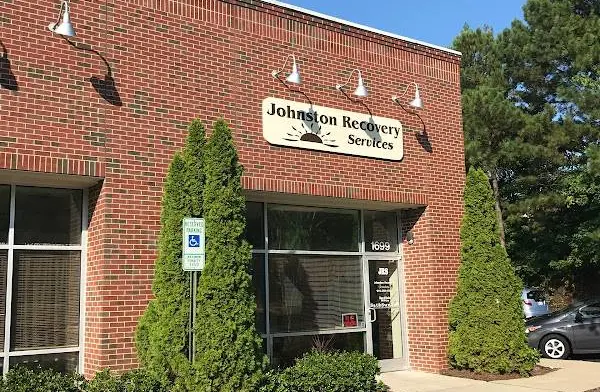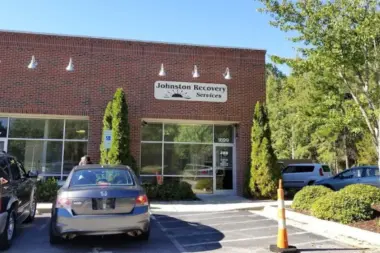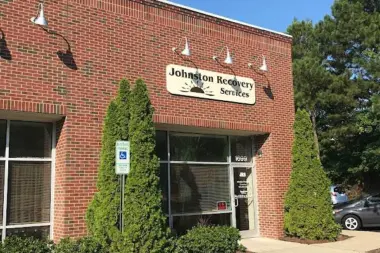When I first entered JRS as a patient over 4 years ago I was a complete mess! These folks were so caring and non-judgmental and they welcomed me with open arms. Every single one of the staff, nurses, doctors and counselors were all so nice and they never made me feel ashamed ...
About Johnston Recovery Services
Adults who seek support to overcome opioid dependence at Johnston Recovery Services in Clayton, North Carolina, can find healing, stability and a renewed sense of hope for a better tomorrow. This is evident from the outpouring of positive feedback and heartfelt praise from past clients who felt truly supported and transformed by their experience. One client noted, “This place is literally a God send, they have helped me immensely and I finally feel like I’m getting my life back one day at a time…” These consistent praises validate the clinic’s CARF-accreditation, reflecting a deeper commitment to ensuring clients receive superior quality care in an environment that is safe and respectful of their dignity.
Johnston Recovery Services is situated at Old US Highway 70 in the semi-commercial neighborhood of East Clayton within Johnston County, North Carolina. The clinic is about two miles southwest of Clayton Community Park, the Clayton Center and Historic Downtown Clayton.
Medication Supported Recovery with Methadone and Buprenorphine
They offer accessible medication assisted treatment (MAT) for residents of this community and the broader Johnston County. One great feature of this clinic is their flexible dosing schedule, which includes weekend availability.
MAT is a research-backed technique that pairs FDA-approved medications with behavioral therapy to support long-term abstinence. Most people know Johnston Recovery Services as a methadone maintenance clinic because they primarily dispense methadone for their MAT program. However, they also use buprenorphine which is another powerful and popular option in opioid addiction treatment.
Following screening or assessment, your tailored care will involve a prescription of either of these medications to help manage painful withdrawal symptoms and alleviate physiological cravings. This grants you the clarity and focus needed to achieve lasting recovery through behavioral therapy.
Therapy sessions address underlying emotional and psychological triggers, helping you build healthier coping mechanisms to prevent relapse and sustain long-term healing. This trusted and integrated approach can help you reclaim your life, mend broken relationships and maintain meaningful employment necessary to achieve stability.
Latest Reviews
Rehab Score
Gallery




Other Forms of Payment
Medicaid is a state based program that helps lower-income individuals and families pay for healthcare. Medicaid covers addiction treatment so those enrolled can use their coverage to pay for rehab. When a program accepts Medicaid the client often pays very little or nothing out of their own pocket.
Self-pay involves paying for treatment out of your own pocket. You can use savings or credit, get a personal loan, or receive help from family and friends to fund your treatment. If you don't have insurance or your insurance plan doesn't cover a specific program, self-pay can help ensure you still get the care you need.
Medicare is a federal program that provides health insurance for those 65 and older. It also serves people under 65 with chronic and disabling health challenges. To use Medicare for addiction treatment you need to find a program that accepts Medicare and is in network with your plan. Out of pocket costs and preauthorization requirements vary, so always check with your provider.
Addiction Treatments
Levels of Care
Outpatient Programs (OP) are for those seeking mental rehab or drug rehab, but who also stay at home every night. The main difference between outpatient treatment (OP) and intensive outpatient treatment (IOP) lies in the amount of hours the patient spends at the facility. Most of the time an outpatient program is designed for someone who has completed an inpatient stay and is looking to continue their growth in recovery. Outpatient is not meant to be the starting point, it is commonly referred to as aftercare.
Drug and alcohol addiction often takes a heavy toll on one's body. Over time, a physical dependence can develop, meaning the body physiologically needs the substance to function. Detox is the process of removing drugs and/or alcohol from the body, a process that can be lethal if mismanaged. Medical detox is done by licensed medical professionals who monitor vital signs and keep you safe, healthy, and as comfortable as possible as you go through detox and withdrawal.
Treatments
The goal of treatment for alcoholism is abstinence. Those with poor social support, poor motivation, or psychiatric disorders tend to relapse within a few years of treatment. For these people, success is measured by longer periods of abstinence, reduced use of alcohol, better health, and improved social functioning. Recovery and Maintenance are usually based on 12 step programs and AA meetings.
There are many types of drug rehab in North Carolina. To receive treatment for addiction, you can choose from many inpatient and outpatient programs. Often, participants start with detox and work through a full continuum of care that continues with ongoing support for long-term recovery.
Opioid rehabs specialize in supporting those recovering from opioid addiction. They treat those suffering from addiction to illegal opioids like heroin, as well as prescription drugs like oxycodone. These centers typically combine both physical as well as mental and emotional support to help stop addiction. Physical support often includes medical detox and subsequent medical support (including medication), and mental support includes in-depth therapy to address the underlying causes of addiction.
Substance rehabs focus on helping individuals recover from substance abuse, including alcohol and drug addiction (both illegal and prescription drugs). They often include the opportunity to engage in both individual as well as group therapy.
Programs
Adult rehab programs include therapies tailored to each client's specific needs, goals, and recovery progress. They are tailored to the specific challenges adult clients may face, including family and work pressures and commitments. From inpatient and residential treatment to various levels of outpatient services, there are many options available. Some facilities also help adults work through co-occurring conditions, like anxiety, that can accompany addiction.
Young adulthood can be an exciting, yet difficult, time of transition. Individuals in their late teens to mid-20s face unique stressors related to school, jobs, families, and social circles, which can lead to a rise in substance use. Rehab centers with dedicated young adult programs will include activities and amenities that cater to this age group, with an emphasis on specialized counseling, peer socialization, and ongoing aftercare.
Clinical Services
Group therapy is any therapeutic work that happens in a group (not one-on-one). There are a number of different group therapy modalities, including support groups, experiential therapy, psycho-education, and more. Group therapy involves treatment as well as processing interaction between group members.
Staff & Accreditations
Staff
Jennifer Davison
Program Director
Cherri Swails
Clinical Supervisor
Sarah Hess
Counselor
Accreditations

The Commission on Accreditation of Rehabilitation Facilities (CARF) is a non-profit organization that specifically accredits rehab organizations. Founded in 1966, CARF's, mission is to help service providers like rehab facilities maintain high standards of care.
CARF Accreditation: Yes
Contact Information
1699 Old U.S. Hwy 70
Clayton, NC 27520